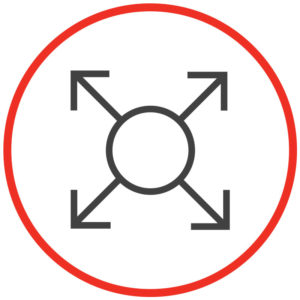How Long Will My Garage Door Last?
Besides a Fargoan’s love for Carson Wentz, nothing lasts forever. This holds especially true for your garage door. One of the questions we answer most frequently is: “How long will my garage door last?”. Unfortunately, this question doesn’t possess a simple answer.
What Factors Affect Garage Door Lifespan?
A multitude of factors determine the longevity of your garage door system:- Weather conditions – our climate isn’t particularly garage-door-friendly
- Maintenance and care
- Product quality
- Quality of installation

Garage Door Lifespan
The typical lifespan of your garage door, uninfluenced by outside factors, is 30 years. However, your garage door is only one piece of an entire garage door system. Your garage door spring, one of the most important elements of your system, has a typical lifecycle of 10,000 cycles. To put this into a relevant perspective:- 2 daily cycles = 14 year lifespan
- 4 daily cycles = 7 year lifespan
- 6 daily cycles = 3.5 years

How Can I Extend/Maintain My Garage Door Lifespan
To learn more about the importance of proper garage door maintenance, check out our latest blog.
Lubricate. Once a month, lubricate your garage door spring, rollers, tracks, and weather strip. Proper lubrication keeps friction from causing excessive wear and tear. Use a silicon-based gel and apply liberally. Do not use WD-40 as it is not a true lubricant. However, feel free to apply WD-40 as a rust preventer.
Test Safety Reversal System & Sensors. Mandatory safety reversal systems make sure your garage door automatically reverses when coming into contact with an object or obstruction. The failure of these systems not only leave people, and belongings, vulnerable to the force of a closed garage door, but it can also lead to damage.
If your garage door comes into contact with an object and doesn’t reverse, it will continue to apply force until the resistance is eliminated. Some homeowners are unaware of obstructions causing their garage door to never fully close. This continual force puts excessive strain on your entire garage door system and can dramatically decrease its lifespan.
Check Spring. A broken spring is the most destructive issue with any garage door system. As the heavy lifter of your garage door system, any faults slowly affect all other garage door components.
Checking your spring on a monthly basis is crucial to proper maintenance. If any issues are detected, call a technician immediately. When your spring reaches its 10,000 cycles, make sure to schedule a replacement. A properly functioning spring will help to ensure your garage door lasts its entire lifespan.
Check Door Opener. The control center. As the captain of your garage door system, your garage door opener needs to be in working order at all times. Periodic checks ensure your garage door is opening and closing properly.
Make sure to replace your opener every 15 years.
Align Tracks. Track alignment is essential to smooth operation. Any alignment issues typically lead to strain on all other garage door components – similar to the garage door spring. While some alignment issues can be fixed by the homeowner, any significant issues must be handled by a technician.
While a homeowner can’t control outside factors, such as the weather and installation quality, he or she can control the care and attention they give their garage door system. With some much needed TLC, you can ensure your garage door lives a long and healthy life.
For a complete preventative maintenance checklist, jump over to our Preventative Maintenance Page.